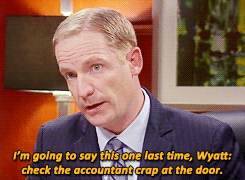What is Appropriate VC Diligence?
Founders get a lot of VC diligence requests during fundraising. Most are straightforward, some can seem a bit odd and others can feel downright inappropriate. Here are 6 examples of appropriate VC diligence requests and 6 examples that should set off your alarm bells.
Financial Projections
✅ Appropriate: Asking for a Financial Projection
Many early-stage founders don’t understand why investors ask them for financial projections. Surely, if they were “good investors”, they would know that the numbers were pulled out of thin air and that the projections are completely inaccurate.
Of course we do.
The reason why VCs ask for financial projections isn’t because we expect them to be accurate, it’s because they give us insight into how you think. What assumptions are you making about customer acquisition, growth rates and pricing? How reasonable (or unreasonable) are your spending assumptions? And so on.
Ultimately, financial projections serve as an important conversation starter during the diligence process and allow us to better understand how you plan to manage the business (which is, ultimately, what we’re investing in).
🚩 Inappropriate: Asking for Itemized Financial Projections
While high-level financial projections are important to the diligence process, if an investor asks for itemized financial projections or starts debating small details (why are you buying lunch for employees once a week instead of once a month?), it’s generally a red flag. In particular, it can reveal an investor who expects to be involved in each-and-every decision and may ultimately act as a micromanager.
Moats
✅ Appropriate: Asking What Your Moat Is / Will Be
Similar to financial projections, many founders presume this to be a silly / lazy question.
For potential investors, it’s very insightful to hear how you think about long-term defensibility. Are you creating something you believe will become increasingly valuable over time? Are there aspects of your product/technology that are difficult to reproduce? Or do you think it’s all about first-mover advantage?
Regardless of the stage of your company or the industry you’re in, investors want to know how you’re thinking about competition and defensibility. (Packy McCormick recently wrote a great post on how early-stage startups should think about moats.)
🚩 Inappropriate: Asking What if Google Builds This?
For companies that are adjacent to a large incumbent or planning to go to battle with one, asking “what if Google/Facebook/Salesforce/Open AI/etc. builds this?” is a valid question (particularly if it’s not yet clear whether you’re building a “product or a feature”).
But in many situations, it’s just a lazy question. Yes, you should answer it seriously, but if an investor is trying to goad you into a lengthy discussion about what-if-Google-builds-something-they’ve-never-in-their-history-built (or shown any inclination towards building), it’s often a red flag. If the investor presses the issue, ask them why they’re so concerned about it and/or if they have inside information about the company’s future roadmap.
Valuation Expectations
✅ Appropriate: Asking What Your Expectations are for Round Size, Valuation/Cap, etc.
It is perfectly appropriate for a VC to ask you what your expectations are in terms of valuation. It’s a question that will come up in 99.999% of first meetings. Not only does it provide insight into how you’re thinking about your fundraise, it’s a first move that every investor will make in order to try to anchor future negotiations.
How you choose to answer the question is up to you:
If you’re raising a small round on a SAFE — where you’re setting the terms — then you should answer it directly.
If you’re running a high-velocity fundraising process and driving towards multiple term sheets, it’s perfectly acceptable to act coy (e.g. by telling the investor that you’re looking for the market to price the round).
Some programs (e.g. YC) encourage founders to anchor the conversation early on around a high valuation.
Regardless of your approach, you should have a pre-canned answer that you can deliver with confidence.
🚩 Inappropriate: Insisting that Your Expectations be Provided in Writing
With the exception of the dollar amount you are trying to raise, there is no reason for an investor to ever ask you to provide round expectations or progress details, such as the names of investors who have verbally committed, in writing (particularly if you’ve previously shared it with them). Asking for existing investor details is standard (your cap table should be in your data room) as is requesting copies of any SAFEs that have already been signed.
Otherwise, VCs are perfectly capable of taking notes.
User Data
✅ Appropriate: Asking for Retention Metrics, Cohort Analysis, Heatmaps, etc.
For pre-PMF companies, investors know that the early data is inconsistent and inconclusive. There are likely a lot of question marks around churn, long-term retention, frequency of usage, etc. (even if you have revenue). You’re still trying to figure it out.
That’s exactly why investors want to dig into the data. Are things moving in the right direction? Are you figuring out how to more effectively acquire users/customers (e.g. is CAC going down)? Are you plugging holes in the product (e.g. is retention going up / churn going down)? Are you seeing signals of “sticky” cohorts / power users (are there particular cohorts that are highly active)? Is your revenue real?
You should expect during fundraising that investors will ask you to generate a variety of analysis/reports in addition to the ones you’ve already got in your data room. It’s because they’re asking questions you might not have thought of yet and it’s perfectly normal (there is, of course, a limit to how much time/effort you want to dedicate to answering such requests, but so long as the justification for the request seems reasonable, you should go ahead and answer it).
🚩 Inappropriate: Asking for Raw User Data
With few exceptions, a VC asking for raw user data is a huge red flag. In my experience, investors rarely need access to raw customer/user data in order to make an investment decision. (Occasionally, an investor will want access to raw data for confirmatory reasons, but this can come after the term sheet.)
The reality is that most VCs asking for raw user data are doing so to add it to an internal databases, build capabilities that will benefit their firm and/or share it with their portfolio companies. If the investor doesn’t typically invest at your stage, this is guaranteed to be the reason.
If they ask you for raw data and insist that you provide it in a specific format, end the call immediately.
I do think it’s acceptable for investors to ask for samples of the data you’re collecting in order to help them understand your capabilities (particularly if data models, etc. are a core aspect of your IP). There are also some investors who will offer to collaboratively work through analysis during the diligence process — which is totally cool, since the data remains in your control.
But, broadly speaking, the appropriate diligence etiquette is for investors to ask specific questions and for you to provide them with the answers to those question. Not raw data.
User/Customer References
✅ Appropriate: Asking You for Customer References
At some point, every VC will want to speak to one or more customer references. Investors want to hear “from the horses mouth” how they feel about your product and how they’re thinking about it going forward.
You should also expect some of them to do so without asking you in advance. This might feel uncomfortable/inappropriate, but if you’re highlighting a company logo on your pitch deck and bringing attention to them as a customer, you’d better believe that VCs are going to reach out to people they know at that company to fact-check your claims.
🚩 Inappropriate: Insisting on Customer References Too Early
While you should expect every VC to insist on customer references at some point in the process, it’s completely acceptable for you to defer them (e.g. by saying “I’d be more than happy to provide you with multiple customer references as we progress further”). Good investors understand that you have to shield your customer champions from too much activity. Insisting on access to customers too early in the process can be a red flag that they’re looking to educate themselves on the market more than they’re looking to invest in you.
Sales Pipeline
✅ Appropriate: Asking You to Share Your Sales Pipeline
If you’re a B2B company, every VC will ask to see your sales pipeline at some point in the process. Generally, you should have this in your data room ready to go.
A few things to note:
Don’t overthink the formatting of your sales pipeline. It could be a direct export from your CRM, a simple spreadsheet, or a detailed PowerPoint slide.
Your sales pipeline should be broken down into stages that accurately reflect your sales process, with weight-adjusted estimates that reflect the value of your pipeline.
It is completely okay to anonymize some or all of the companies in your pipeline, particularly if there are sensitivities around them.
Expect this to be a focus of discussion during your fundraising process, as the investor attempts to read the tealeaves about your short-to-midterm revenue growth.
🚩 Inappropriate: Asking You to Speak with Sales Prospects
Investors will typically want to speak with one or more customers during the diligence process in order to understand how critical your product is to them and what is the potential for future sales. What isn’t typical is asking to speak with a company that has not yet signed with you (unless it’s a pilot customer who you’ve offered as a reference).
No good investor will ever act in a way that would put a potential sale at risk. While back channel references are common, be wary of any investor who jeopardizes your sales prospects in order to perform diligence — if they’re putting their own best interests ahead of yours this early, you can imagine what they might do down the road.
VC diligence can be intense and at times the questions might seem out of left field. Know that the vast majority of VCs have specific reasons for asking the questions they do and are intentional in the diligence requests they make. They’re trying to gain conviction in you and your business and are coming from a good place.
That said, if something doesn’t feel right, don’t be afraid to ask.
“What question are you trying to answer with this?” or “Can you walk me through how this will help you better understand my company?” are great questions that you should feel empowered to use.
And, as always, trust your gut. If something seems like a red flag, it probably is.







